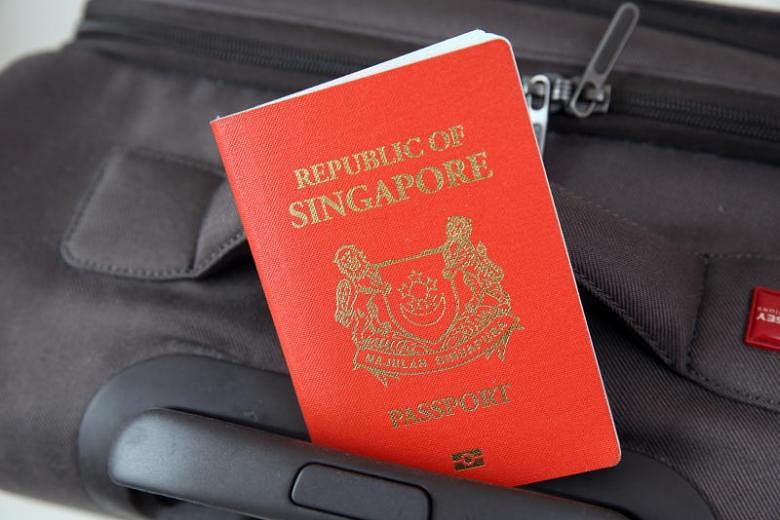Singaporeans again hold the world's most powerful passport, this time alongside the Japanese and South Koreans.
The three Asian countries enjoy visa-free or visa-on-arrival access to 189 destinations.
The Singapore passport dropped to second place in May last year when the Japanese charged ahead. In July, it went back to No. 1, but slipped a notch in October and January.
Yesterday, it came back to share the top spot in the latest Henley Passport Index update.
Global citizenship and residence advisory firm Henley & Partners, which compiles the data for the index, said in a statement the results give a "resounding demonstration of Asia's growing power and influence on the world stage".
Germany's score of 188 came close to put it in second place, after it received visa-exemption from Uzbekistan. The country previously shared third place with France.
Five countries - Denmark, Finland, France, Italy and Sweden - are now jointly in third place with a score of 187. Luxembourg and Spain came in fourth.
Britain came in fifth and the United States, sixth. Both countries last held joint top spot in 2015.
Henley & Partners noted that the Brexit process had not had a marked effect on Britain's standing on the index yet. Its fall from its third placing in 2016 was a result of gains made by Asian countries, rather than as a direct consequence of Brexit.
The index revealed that the United Arab Emirates has continued on its upward trajectory and is now just one spot away from entering the index's top 20.
Ranked bottom of the 104 countries are Afghanistan and Iraq with a score of 30, a position one or both countries have occupied throughout the index's 14-year history.
Studies have shown that visa restrictions can impact bilateral trade and foreign investment, and nations with more liberal visa policies tend to benefit from increased economic, scientific, tourism and cultural exchanges with others.
Henley & Partners Singapore managing partner Dominic Volek said: "A snapshot of the index's Top 20 today, compared to what it was 20 years ago, tells an interesting story. European countries dominated the index then and were immovable.
"But today's Top 20 has seen significant movements, especially in the last several years. European countries have been surely but steadily dropping down the ranks as Asian countries improve to take their place."
Mr Volek, who is also the firm's head of South-east Asia, said Singapore improved by more than 30 points between 2009 and 2019 to rise from eighth place to joint first place.
The latest rankings indicate a clear momentum of Asian countries taking centre stage in globalisation, said FutureMap founder and managing partner Parag Khanna. "The steady rise of China through its visa-waiver agreements shows how incremental and reciprocal measures can lead to significant progress in trust and recognition," he added.
With China's Belt and Road Initiative, several Asian, European, Arab and African countries are expected to continue to seek more seamless access to one another's countries.
The Henley Passport Index is based on data from the International Air Transport Association, which maintains the world's largest database of travel information.


